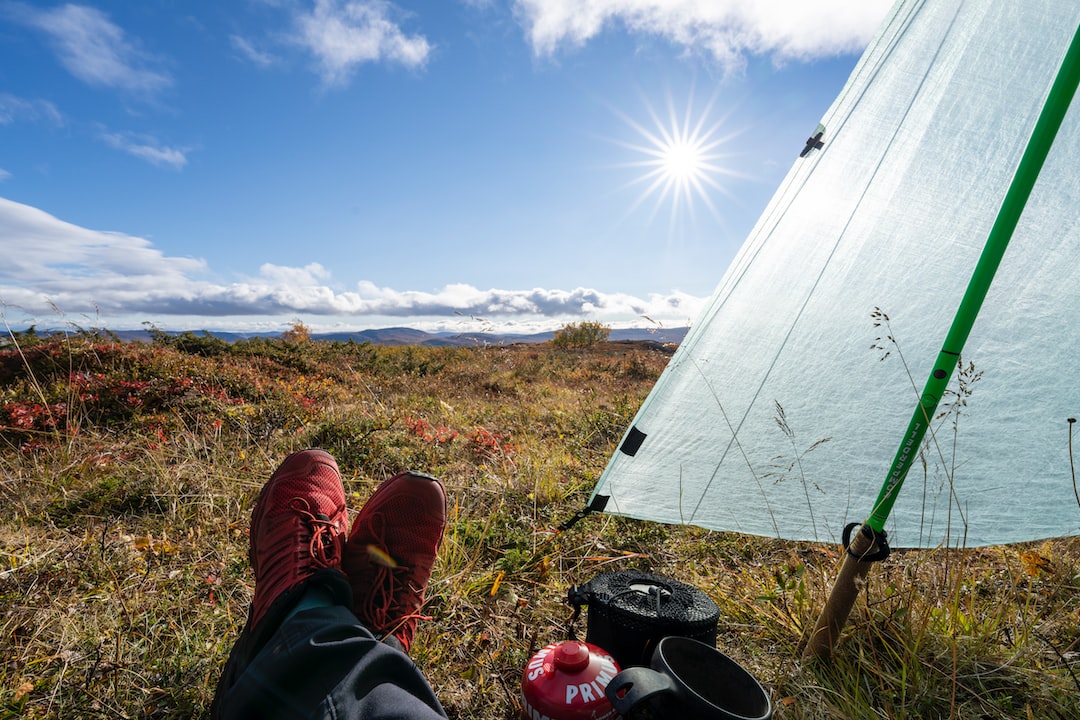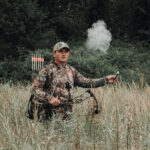For hunters and sportsman, the importance of nutrition while out in the wild is paramount.
That’s why it pays to know about the best freeze dried backpacking meals available today. From understanding how freeze drying works to comparing Peak Refuel vs Mountain House, this guide will provide you with all you need to make an informed decision when choosing your next meal for a hunt or outdoor excursion.
We’ll also cover other important topics such as nutrition for hunting and backpacking as well as tips on finding backpacking meals that don’t require water – plus some great suggestions on which are the best snacks for those long days outdoors.
Freeze Drying Basics
What is Freeze Drying?
Freeze drying is a process that removes moisture from food by freezing it and then applying a vacuum to draw out the remaining water. This process preserves the taste, texture, and nutritional value of food while extending its shelf life.
Freeze-dried foods make for a convenient option when packing for outdoor adventures, as they are lightweight and simple to store. Freeze dried meals are often found in powdered form and can be reconstituted with hot or cold water depending on the type of meal.
Benefits of Freeze Dried Meals
Freeze dried meals offer several benefits over traditional canned goods or other packaged foods. First, they require no refrigeration or cooking – just add hot or cold water to rehydrate them.
Second, freeze-dried meals have an incredibly long shelf life – up to 25 years when stored properly. Third, they’re light weight compared to their canned counterparts; one pound of freeze-dried food takes up about 1/3 less space than one pound of regular canned goods.
Finally, freeze-dried options are often enriched with more vitamins and minerals than other non-freeze dried products due to the absence of preservatives during production.
Types Of Freeze Dried Meals
From breakfast items like oatmeal packets and granola bars to dinner entrees such as lasagna with meat sauce, the variety of freeze dried meals available today is vast.
There are even desserts like ice cream sandwiches made with real ice cream. No matter your dietary requirements, there’s bound to be something that appeals to you among the variety of freeze-dried meals available.
Freeze drying is a great way to preserve food for long-term storage and use in backpacking meals. It offers convenience, nutrition, and flavor that can’t be beat.
Next up we’ll take an in-depth look at two of the most popular freeze dried meal brands – Peak Refuel and Mountain House – to compare their taste, nutritional value, and more.
Peak Refuel vs Mountain House
Peak Refuel and Mountain House are two of the most popular freeze dried backpacking meals on the market.
Both brands offer a range of options to satisfy the cravings of any outdoorsman, ranging from bold spices like cumin and chili powder in Peak Refuel meals to classic flavors such as beef broth or cheese sauce in Mountain House dishes.
When it comes to taste, Peak Refuel is known for its unique flavor combinations that often feature bold spices like cumin or chili powder. Mountain House meals have a more classic flavor profile, with savory ingredients like beef broth or cheese sauce.
When comparing nutritional value, Peak Refuel offers higher amounts of protein per serving than Mountain House; however, they also contain more carbohydrates and fat.
The calories in both brands are relatively similar, but if you’re looking for high-protein options then Peak Refuel may be the better choice. When it comes to sodium, both brands can vary greatly; thus, careful examination of labels is recommended prior to purchase.
Overall, when deciding between Peak Refuel vs Mountain House freeze dried backpacking meals it really depends on your individual preferences and dietary needs. If you prefer bolder flavors then Peak Refuel might be right up your alley while those who prefer classic tastes should consider giving Mountain House a try.
No matter the selection, it’s essential to evaluate nutrition facts carefully so as to ensure that your body is receiving proper sustenance when in nature.
When it comes to freeze dried backpacking meals, both Peak Refuel and Mountain House offer tasty options that provide the necessary nutrients for outdoor performance. Macronutrients are key for sustaining energy while out hunting or backpacking, and staying hydrated and balanced in electrolytes can keep you going during those lengthy days outdoors.
Nutrition for Hunting and Backpacking
Hunting and backpacking can be a physically demanding activity, so it’s important to make sure you are properly fueled. When getting ready for your outdoor journey, knowing macronutrients is critical to sustaining energy levels during the day.
Carbohydrates provide energy that will help you power through long hikes or treks in search of game.
Protein helps build muscle and aids in recovery after physical exertion while fats help maintain body temperature and provide fuel during low-intensity activities like hunting.
Complex carbohydrates such as oats or whole grains should be consumed at breakfast time to fuel up for the day ahead, providing sustained energy throughout the morning hours. Simple carbs like honey or dried fruit should be ingested prior to strenuous activity in order to give an immediate boost of energy.
Lean meats like chicken or fish are great sources of amino acids needed by our bodies for muscle repair; while healthy unsaturated fats found in nuts, seeds, and avocado oil provide essential fatty acids that cannot be produced naturally and must therefore be obtained through diet.
Before exercise, it is beneficial to consume simple carbohydrates such as honey or dried fruit for an energy boost, while protein from lean meats like chicken and fish offer amino acids needed by the body for muscle repair; additionally, unsaturated fats found in nuts, seeds and avocado oil supply essential fatty acids that cannot be made naturally.
Prolonged physical activity in extreme weather conditions can rapidly lead to electrolyte imbalances due to increased sweat loss, so it is essential for athletes engaging in high intensity activities outdoors to keep hydrated.
Even mild dehydration can significantly impair performance as reduced blood volume limits oxygen delivery and affects both strength output and endurance capacity.
If not addressed immediately with proper rehydration techniques involving fluids containing electrolytes such as sports drinks, serious health issues including heat exhaustion or stroke may arise.
Nutrition for Hunting and Backpacking is essential to ensure optimal performance in the outdoors. So, let’s take a look at some edibles that don’t necessitate H2O – dehydrated victuals and ready-made snacks.
Backpacking Meals That Don’t Require Water
Dehydrated foods are a great option for backpacking meals that don’t require water. Dried comestibles can be restored with hot or cold liquid when it’s time to eat. Dehydrated foods come in many forms, such as fruits, vegetables, grains, and even meats.
They can be found at most grocery stores and outdoor specialty stores. Some popular dehydrated options include oatmeal, granola bars, instant soups and stews, freeze-dried fruit snacks, jerky sticks or strips, trail mix combinations with nuts and seeds like almonds or pumpkin seeds mixed with dried fruit pieces like cranberries or apricots.
Backpacking nourishment sans water can be a great way to economize effort and time when on the move. When looking for snacks, it’s important to consider options that provide adequate nutrition such as high protein foods, low carb alternatives, and healthy fats.
Best Backpacking Snacks for Hunters and Sportsman
High Protein Options:
When it comes to backpacking snacks for hunters and sportsman, high protein options are a must. Jerky is an obvious choice as it’s lightweight, portable, and provides a good source of lean protein.
Nuts such as almonds, cashews, and pistachios provide a great source of protein and healthy fats to help sustain energy levels during outdoor activities. Hard-boiled eggs or egg whites are another excellent option as they contain both fat and protein in one convenient package.
If you’re looking for something more filling but still high in protein, try adding some tuna or salmon packets to your snack arsenal – just make sure to bring along a few lemons or limes for added flavor.
String cheese sticks, beef jerky, dried fruits such as apricots or cranberries, nut butter packs like almond butter, olives and freeze-dried vegetables like broccoli florets offer low carb options for hunters and sportsman out on the trail.
These snacks provide an array of benefits without spiking blood sugar levels; they supply calcium while remaining minimal in carbohydrates; their portability makes them ideal for outdoor adventures; plus they deliver a salty kick or sweetness without all the extra sugar.
Avocado slices, walnuts, macadamia nuts, nut butters such as peanut butter and coconut flakes should not be overlooked when selecting snacks for hunting trips.
These healthy fats will provide energy while supplying essential fatty acids to keep your heart in tip-top shape; omega 3 fatty acids may reduce inflammation throughout the body; plus medium chain triglycerides (MCTs) can boost cognitive function during lengthy days outdoors – all without sacrificing flavor.
These high protein, low carb, and healthy fat snacks are perfect for hunters who need quick fuel between meals on their outdoor excursions; so don’t forget them the next time you hit the trails.
FAQs in Relation to Best Freeze Dried Backpacking Meals
Is freeze-dried food good for backpacking?
Yes, freeze-dried food is an excellent choice for backpacking. It’s lightweight and nutrient dense, making it a great option for long trips where you need to pack light.
Freeze-drying involves taking out moisture from foodstuffs while keeping its nutritional value, enabling it to stay good for a longer time than other types of dehydrated foods.
Additionally, since the process does not involve cooking or heating up the food prior to consumption there are fewer chances that bacteria will form in your backpack during storage.
Which company has the best freeze-dried food?
No one producer can be conclusively declared to possess the top freeze-dried foodstuff. Given the range of freeze-dried food options available, selecting the best one for you requires considering your preferences and researching reviews to identify a suitable brand.
Some popular brands include Mountain House, Augason Farms, Wise Foods, Backpacker’s Pantry and Harmony House Foods. Before committing to a purchase, it is recommended that you read reviews online in order to ensure the best freeze-dried food for your needs.
How long is freeze-dried backpacking food good for?
Freeze-dried backpacking food is typically good for up to 25 years if stored in a cool, dry place. The shelf life of the food will depend on its ingredients and how it was processed, but generally speaking freeze-dried foods can last quite a long time without spoiling or losing their nutritional value.
For maximum freshness, keep your freeze-dried meals sealed in a cool, dark area. If properly stored, you can enjoy delicious freeze-dried meals even after many years have passed.
Can bears smell freeze-dried meals?
Yes, bears can smell freeze-dried meals. Bears possess a strong olfactory capability, able to sense aromas from extended distances. Campers and hikers in bear-inhabited areas should be sure to keep their campsites clean, and store any fragrant items like freeze-dried meals securely away from the animals’ reach.
Conclusion
Hunting and backpacking require a special type of meal that will keep you energized and fueled for the journey. Freeze dried meals are an excellent option as they don’t require water to prepare, provide essential nutrition, and have great taste.
When looking for the best freeze dried backpacking meals, consider Peak Refuel or Mountain House options as these offer quality ingredients in tasty flavors while still being lightweight enough to take on your next outdoor adventure.



